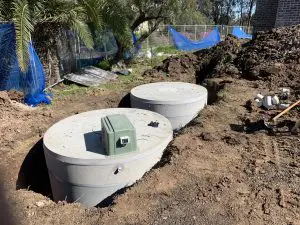In the realm of wastewater management, the significance of desludging cannot be overstated. Whether you’re a homeowner with a septic tank or overseeing a large-scale wastewater treatment facility, proper maintenance is paramount for the functionality, efficiency, and longevity of your system. Desludging, the removal of accumulated sludge and solids from tanks and treatment units, stands as a cornerstone of responsible wastewater management. In this discourse, we delve into the reasons why desludging your wastewater system is not just important but imperative.
Safeguarding the Environment:
One of the foremost reasons to prioritize desludging is its positive impact on the environment. Wastewater, if left untreated or improperly managed, poses significant risks to ecosystems and public health. Accumulated sludge can release harmful pathogens, nutrients, and pollutants into the soil and water bodies, leading to contamination and ecosystem degradation. By routinely desludging your system, you mitigate these risks, ensuring that wastewater is treated effectively and released back into the environment with minimal adverse effects.
Preserving Public Health:
The health implications of neglected wastewater systems are profound. Untreated or poorly treated wastewater can harbor a cocktail of disease-causing microorganisms, including bacteria, viruses, and parasites. When released into the environment or seeping into groundwater, these pathogens can contaminate drinking water sources and cause widespread illness. Regular desludging removes the breeding ground for such pathogens, reducing the risk of waterborne diseases and safeguarding public health in communities.

Optimizing System Performance:
Efficient wastewater treatment hinges on the smooth operation of treatment units and infrastructure. Over time, organic solids and sludge accumulate in tanks and pipelines, impeding the flow of wastewater and hindering treatment processes. This accumulation leads to reduced hydraulic capacity, increased energy consumption, and decreased treatment efficiency. Desludging alleviates these issues by restoring the system’s capacity and ensuring optimal performance. By maintaining clean tanks and clear pipelines, you maximize the effectiveness of your wastewater treatment system.
Prolonging Equipment Lifespan:
Like any mechanical system, wastewater treatment equipment requires regular maintenance to function reliably and sustainably. Failure to desludge can accelerate wear and tear on pumps, motors, and other components, ultimately leading to premature equipment failure and costly repairs. By adhering to a desludging schedule, you extend the lifespan of your equipment, reducing downtime and avoiding the need for expensive replacements. In essence, investing in desludging is an investment in the longevity and efficiency of your wastewater treatment infrastructure.
Regulatory Compliance:
Regulatory agencies impose strict guidelines and standards for wastewater treatment and disposal to protect public health and the environment. Failure to comply with these regulations can result in hefty fines, legal repercussions, and damage to your reputation. Desludging is often a prerequisite for regulatory compliance, as it ensures that your system operates within permissible limits and meets mandated effluent quality standards. By staying ahead of desludging requirements, you demonstrate your commitment to environmental stewardship and regulatory adherence.
Cost-Effectiveness:
While the upfront costs of desludging may seem daunting, the long-term benefits far outweigh the investment. Regular maintenance, including desludging, is more cost-effective than reactive repairs or system replacements necessitated by neglect. By proactively managing your wastewater system, you mitigate the risk of emergencies, minimize operational costs, and preserve the value of your property. Additionally, the energy savings and efficiency gains associated with desludging contribute to overall cost reduction over time.
Promoting Sustainable Practices:
In an era marked by environmental awareness and sustainability goals, responsible wastewater management is a cornerstone of sustainable practices. Desludging aligns with the principles of resource conservation, pollution prevention, and ecosystem preservation. By treating wastewater as a valuable resource rather than a disposable nuisance, you contribute to the circular economy and minimize your ecological footprint. Embracing desludging as a routine maintenance practice underscores your commitment to sustainability and environmental stewardship.
Desludging your wastewater system is not merely a maintenance task; it’s a responsibility with far-reaching implications for the environment, public health, and operational efficiency. By prioritizing desludging, you safeguard water quality, preserve natural ecosystems, and ensure the longevity of your infrastructure. Moreover, you demonstrate your commitment to regulatory compliance, cost-effectiveness, and sustainable practices. In essence, desludging is not an option but a necessity for anyone invested in the responsible management of wastewater. So, let’s embrace the mantra of desludging for a cleaner, healthier, and more sustainable future.
Related Posts
- How do aerated wastewater treatment systems work
- How to care for your septic tank system
- How does Wastewater and Greywater differ?
- How do I find septic tank maintenance near me?
- Understanding Grey Water Recycling Systems
- Smart Investing: How Regular Servicing Saves You Money in the Long Run
- Understanding Septic Tanks: A Comprehensive Guide for Consumers
- Secrets to an Odour-Free Septic System




